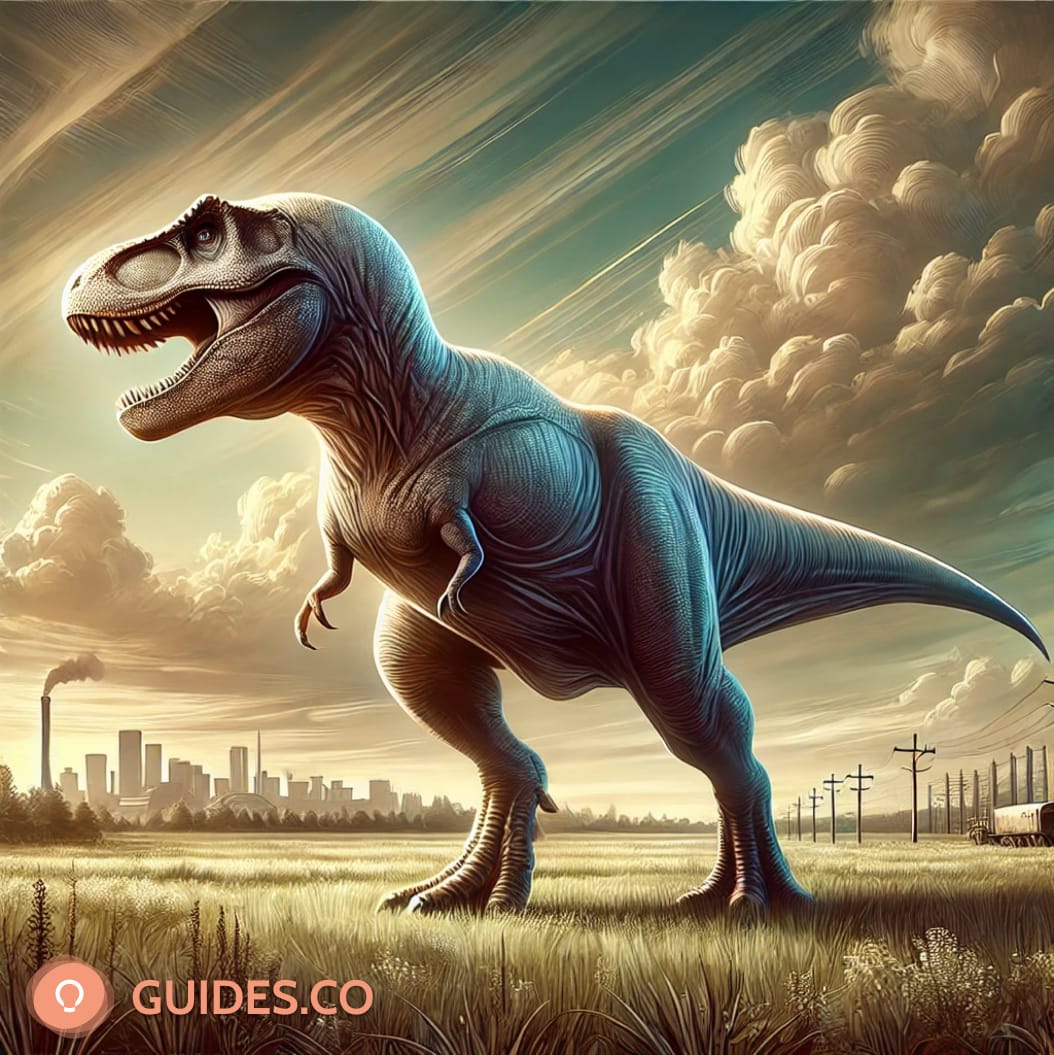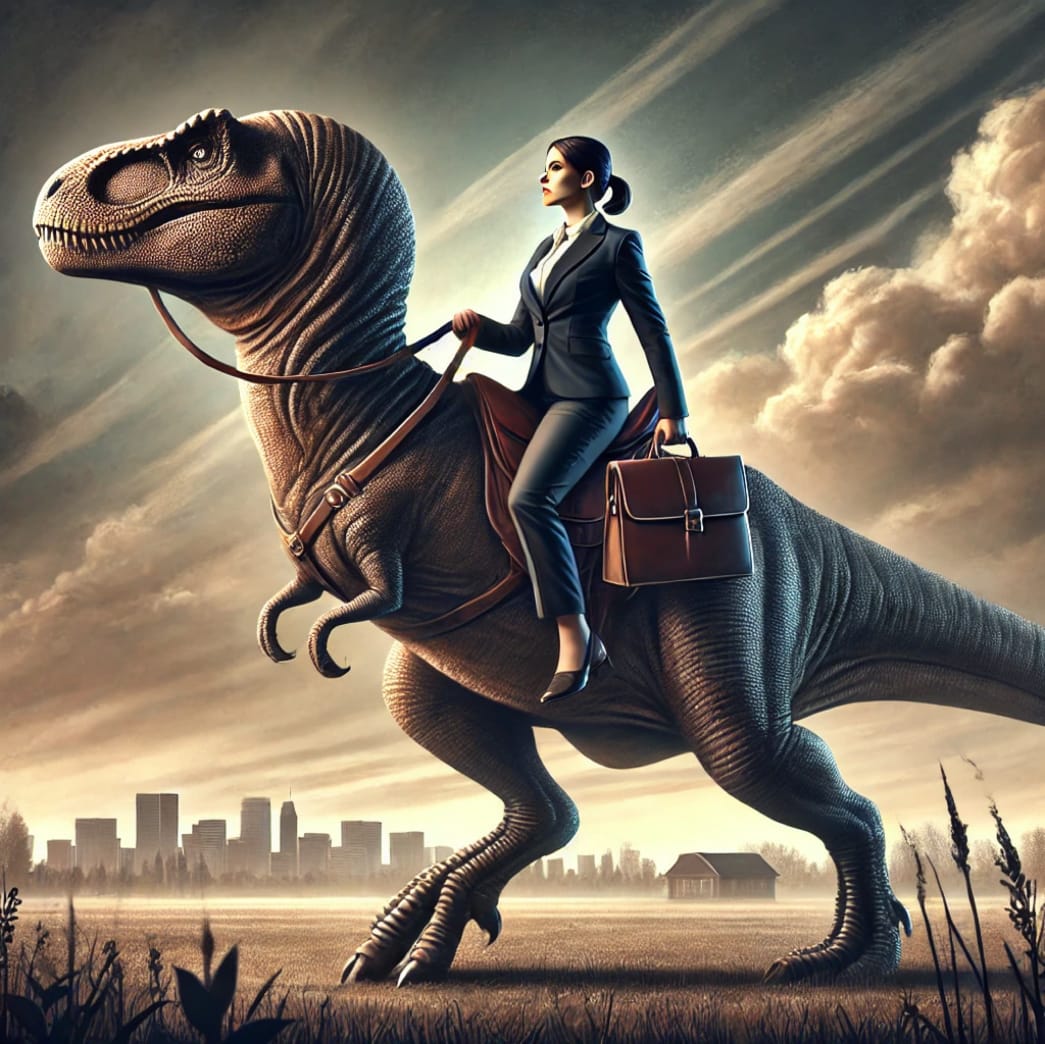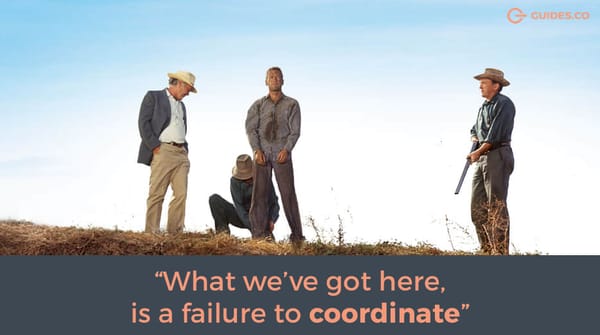The Future of Business Is A DINOsaur - Decentralized, Networked Organizations

At Guides.co, we work almost exclusively with a special kind of organization that most people in traditional businesses rarely think about. We call them DiNOs—Decentralized Networked Organizations—and while they might sound like something new, they’re actually some of the oldest and most powerful models in history.
From guilds to cooperatives, religious organizations to trade networks, DiNOs have been quietly shaping economies for centuries. And while they may seem dormant, they’re rising again—perhaps closer than you might think.
What is a DINO?
DiNOs are organizations that rely on large, distributed networks of external actors to deliver value and achieve their mission. Unlike traditional businesses, these organizations rely on independent people or organizations to deliver the goods. Here are some examples of DiNOs:
- Franchises
- Professional Associations
- Unions
- MLM/Direct Sales Companies
- Gig Economy Platforms
- Certifying Bodies & Licensing Organizations
- Religious Organizations & Denominations
- Nonprofit Networks & Alliances
- Independent Dealer & Distributor Networks
- Affiliate Marketing & Influencer Networks
- Open Source Communities
- Decentralized Autonomous Organizations (DAOs)
- Trade & Industry Groups
- Healthcare Networks
- Real Estate Brokerages
- Education & Training Networks
If you grouped these organizations into a single category, they would represent one of the largest economic forces in the world—likely ranking among the top 10 industries by revenue. They also form one of the largest employment sectors, with well over a billion people engaged as full-time employees, independent contractors, franchisees, members, gig workers, and volunteers.
DiNOs aren’t just a relic of the past—they have consistently outperformed and outlasted many contemporary models by distributing risk, ownership, and responsibility more effectively.
However, while there is much to gain from operating a networked organization, you lose one critical factor that modern businesses thrive on: Control.
The Rise Of Industrial Businesses Was Built On One Thing: Control.
The great corporations of the 19th and 20th centuries dominated markets by owning and managing everything—from raw materials to factories, distribution, and retail. Henry Ford’s assembly lines and General Electric’s sprawling empire succeeded because they centralized operations, standardized processes, and directly employed massive workforces.
This control gave them unmatched power over quality, efficiency, and competition. The more a company integrated, the harder it became for smaller, fragmented players to compete. But in today’s hyper-connected, rapidly changing economy, this once-dominant model is beginning to show its limits.
A Shift From Control To Resilience
The core ingredient that once made industrial giants unstoppable is now their biggest weakness. Control limits growth. It restricts labor, supply, and market access. And as the pace of change accelerates, businesses are ceding control—not by choice, but by necessity. Consider:
- Outsourcing & Supply Chains → Companies now rely on external partners rather than owning everything - from call centres to manufacturing and shipping. Few companies are owning every aspect of their business.
- Franchise & Licensing Models → Just as McDonald’s owns few locations, many businesses now sell brand rights over direct operations to enable them to scale faster and gain market traction.
- Gig & Platform Economy → Companies like Uber, DoorDash, and Fiverr operate as decentralized labor networks, scaling faster than traditional firms that “own” their workforce.
- Corporate Decentralization → Large companies are shifting toward distributed leadership and remote teams to stay agile, attract top talent, and boost job satisfaction.
While traditional businesses may not have embraced a DiNO model completely, their model is definitely shifting.
Why DiNOs Will Thrive
Beyond resilience, DiNOs offer fewer single points of failure, greater scalability without massive capital investment, and more efficient, adaptive operations. They can quickly adjust to market demands, switch providers seamlessly, and tap into global talent pools through innovative wealth distribution models that traditional businesses simply can’t replicate.
Embracing Decentralized Networks
This shift will continue, and leaders who recognize and plan for this future are more likely to thrive than their counterparts.
At Guides.co, we believe that decentralized, network-driven models will define the next era of business. This shift won’t just change how companies operate—it will redefine how we think about work, leadership, and success. This transformation isn’t on the horizon—it’s already happening. The only question is: Will your organization evolve with it or be left behind?

Whatever path you're on, I hope you're enjoying the journey 🙏.





